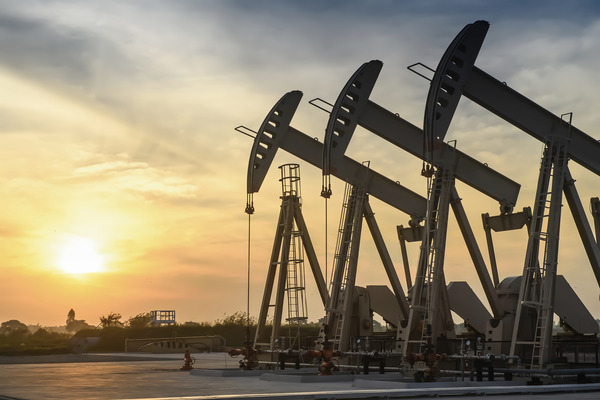Several times in recent months, I recommended that you consider purchasing the major European oil stocks: BP (BP), Shell (SHEL), TotalEnergies (TTE), and Equinor (EQNR)… so I was gratified to see that many of the large U.S. fund managers are jumping into these stocks. For example, the second-largest holding of the Blackrock Equity Dividend Fund is now BP.
The Financial Times recently reported: “European oil companies are attracting U.S. investors who view them as cheap compared with the likes of ExxonMobil and Chevron, after a furious rally in American energy stocks.”
The Financial Times article also revealed that “shares in European supermajors are trading at less than half the value of their U.S. rivals, when measured as a multiple of their expected profits over the next 12 months.” U.S. oil firms have price-to-earnings ratio of around 8, while European oil stocks have a P/E of around 4!
Both groups are dirt cheap, but analysts at JPMorgan Chase say the spread between the two groups has become “extreme.”
That’s in large part due to recent stock performances. As of early December, the S&P 500 energy sub-index is up 53% year-to-date, nearly triple the 18% rise of Europe’s Stoxx 600 energy sub-index.

Why the Valuation Gap?
There has always been a valuation gap between American and European energy companies. but it is unusually wide at this moment. Even though the major European oil companies are moving into renewable energy in a big way, the current valuations look as if they are no longer huge oil and gas producers, nor big money makers.
But in reality, they are…and they are also paying out nice dividends to shareholders. The current yields are of the European oil majors are: BP: 4.28%; Equinor: 4.72%; TotalEnergies: 4.77%; and Shell: 4.42%.
Morningstar summed up the current sentiment around these companies this way:
“European [oil and gas] firms are investing a relatively greater portion of capital into low carbon businesses (renewable power generation, EV charging, etc.) that will reduce their relative oil and gas exposure over time. The market seems to be assigning a greater uncertainty to these transition strategies and a preference for Chevron and Exxon’s primarily hydrocarbon-focused strategies.… Regardless, the transition plans will take time to play out and hydrocarbons remain the primary driver of earnings and cash flow—and they will continue to be during the next five years, at least. As such, European integrated oils are reporting record earnings as well and directing surplus cash flow back toward shareholder returns like their American peers. However, with the lower valuation comes much higher total expected yields (dividends and repurchases). Investors are thus paid to wait for a potential valuation convergence.”
I completely agree, so let’s take a closer at the company in this category with the highest current yield, TotalEnergies.
TotalEnergies (TTE)
Total is an interesting company, to say the least. On the one hand, it is pursuing some of the energy industry’s most contentious developments, like its $20 billion liquefied natural gas play in Mozambique and a $10 billion oil project and pipeline in Uganda.
But on the other hand, Total is investing billions of dollars in clean energy projects from wind farms in the UK’s North Sea to solar plants in Iraq, to hydrogen installations spanning the U.S. to India.
In fact, the investment bank RBC Capital Markets values Total’s low-carbon business at $35 billion, making it far larger than that of any of its big competitors. The low-carbon business got a lot bigger in May with the acquisition of 50% of Clearway Energy Group, a developer of renewable energy projects. It also controls and owns a 42 % of economic interest of its listed subsidiary, Clearway Energy, into which projects are dropped when they reach commercial operation.
Total is similar to Equinor, and not BP and Shell, in that it does not plan a quick retreat from hydrocarbons. Instead, it plans to grow oil and gas production near term while delivering a reduction in emissions over time by expanding its ownership of renewable power and low carbon assets.
Total management is only investing in oil projects with less than a $30 per barrel after-tax breakeven. Oil production will grow by 1.5% per year (thanks to projects in Brazil and Africa) through 2027. Meanwhile LNG production should grow 40% by 2030, with various projects in the U.S., Qatar and Papua New Guinea.
On the dividend front, Total—like its peers—has profited from rising prices for oil and natural gas in 2022, and set aside funds for bigger shareholder payouts.
Investors in the company got an extra €1 ($1.06) per share special dividend in 2022, on top of regular quarterly payouts of €0.69 ($0.73) per share (up 5% from the year prior). The company also buys back its shares to the tune of a few billion dollars per quarter.
I expect the dividend will rise again in 2023, with another special dividend as well. TotalEnergies stock (up 17% year-to-date) is a buy anywhere in the mid-to-upper $50s.





